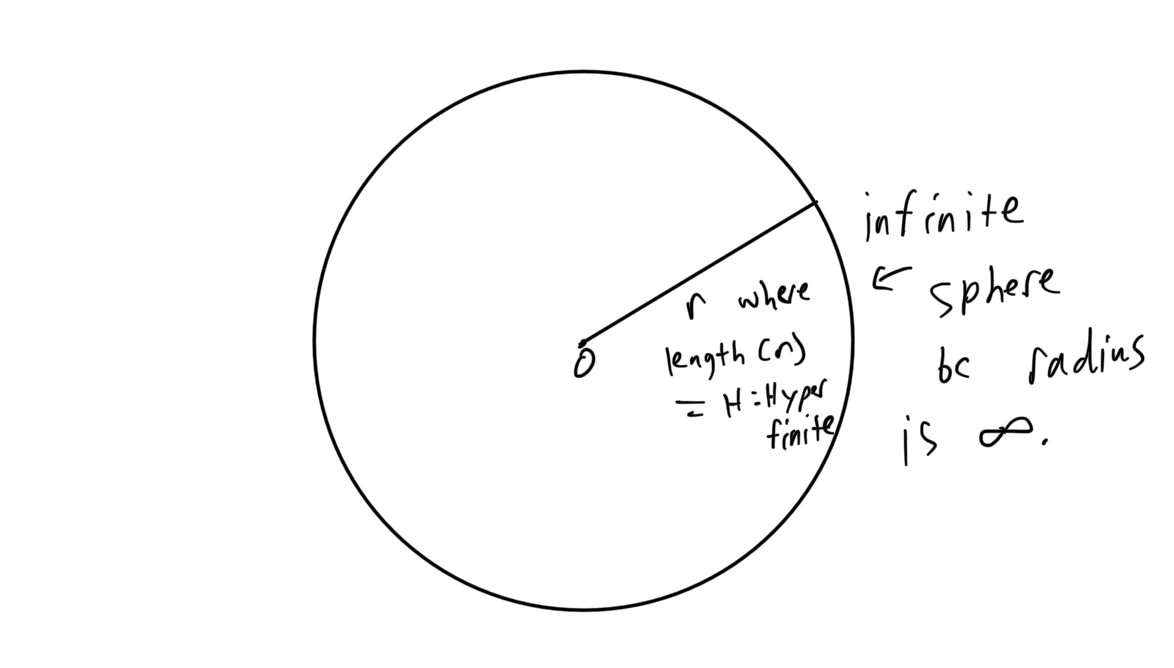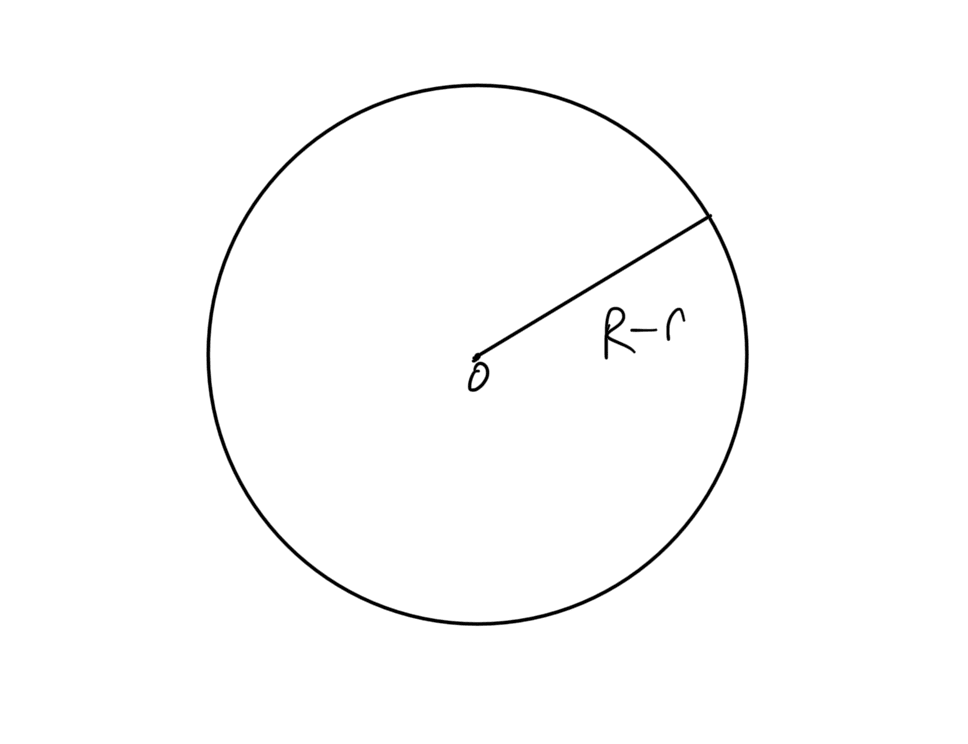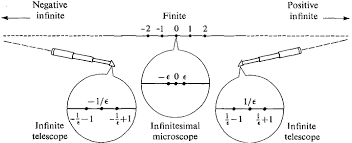Nature is an infinite sphere whose center is everywhere and circumference is nowhere
post by Alok Singh (OldManNick) · 2024-04-03T02:24:55.016Z · LW · GW · 2 commentsContents
Center is everywhere Circumference is nowhere Center is nowhere ≈> Circumference is nowhere The Test None 3 comments
Blaise Pascal said that. When I heard it, this interpretation instantly came.
Whether or not the universe is actually infinite, it's real big. So modeling it as hyperfinite is legit[1].
Imagine a Sphere with unlimited radius . TLDR, is a positive, infinitely big whole number. for all finite . These pictures are circles instead of spheres, but the analysis carries over unchanged.

Center is everywhere
Imagine moving the center point to any other FINITE point. Here's how the picture would change

It wouldn't.
The point is that removing a finite piece from an infinite thing only affects its size by an infinitesimal amount, a point.
Keep this example in mind: the stars seem to be uniformly far but obviously are not. The abstraction of the Celestial Sphere is based on this. Even though all the stars are drawn on this boundary, they are different (big but finite) distances away. Even though light years separate them, you can’t tell.
Imagine shifting the center in the picture along the radius by a finite amount (say the distance to the sun, or just watch this) but keep the boundary fixed. Then the length of the new radius is . But that's almost as long as the original radius. . So moving the center is unobservable. So, it's everywhere because you couldn't ever observe that some radii are shorter than others without moving infinitely far to check, which is impossible. You're not truncating the sphere so much as shaving it.
Circumference is nowhere
It's out at in the Positive Infinite segment, a hyperfinite and therefore inassignable number[2].

Because it's necessarily vague, it's "nowhere" because it cannot be assigned a definite value.
More intuitively, it's really really far away and from your finite portion you can't ever reach it, so is it really there? Does stuff outside the lightcone actually exist? [3]And is even bigger than that!
Center is nowhere ≈> Circumference is nowhere
The ≈> means 'generically implies'.
Saying the 'center is nowhere' would put it at some infinite coordinate . Which you can do, but then generically the circumference will be at infinite coordinates too.
Here' s how to see this. Imagine setting a number so you have the interval . If is appreciable (, in particular just not infinitesimal), then the whole interval won't contain ANY finite coordinates. The tiniest error setting would shoot off everything to infinity and beyond. Concretely, say . Then the whole interval will be , which only contains infinitely big numbers. So an error of 1 in a billion was too much, and 1/any standard number will still have the same issue. You would have to set with infinitesimal-level accuracy. If you write a number out as a decimal, you would have to get it right to an uncountable number of decimal places, not just infinite.
In Pascal's language, nature's center would be nowhere and the circumference would be nowhere too. Unhelpful. And nature is an infinite sphere whose center can be nowhere but then the circumference generically is nowhere too is unsexy.
Universe may well not be generic, but still, makes one wonder. Maybe is contrived.
The Test
Here's the whole context which I googled just now (in particular after writing all the above):
Let man then contemplate the whole of nature in her full and lofty majesty, let him turn his gaze away from the lowly objects around him; let him behold the dazzling light set like an eternal lamp to light up the universe, let him see the earth as a mere speck compared to the vast orbit described by this star, and let him marvel at finding this vast orbit itself to be no more than the tiniest point compared to that described by the stars revolving in the firmament. But if our eyes stop there, let our imagination proceed further; it will grow weary of conceiving things before nature tires of producing them. The whole visible world is only an imperceptible dot in nature’s ample bosom. No idea comes near it; it is no good inflating our conceptions beyond imaginable space, we only bring forth atoms compared to the reality of things. Nature is an infinite sphere whose centre is everywhere and circumference is nowhere.
Interpreting the whole quote, I think it holds up. Even the technical term 'unlimited' captures that our conceiving is exhausted by nature's producing. Also the fundamentally relative nature of scale is hit.
No idea comes near it, the hyperfinite boundary is just so far. I've got a whole thing for inflating conceptions, but I'm cutting it here to publish.
- ^
For experts: By underspill, the analysis should carry over to meaningful statements about a large but finite universe.
- ^
Leibniz's terminology, sadly uncommon. Well, be the change.
- ^
We work for a living, so our ontologies should pull their weight.
2 comments
Comments sorted by top scores.
comment by Daniel Murfet (dmurfet) · 2024-04-03T08:24:27.754Z · LW(p) · GW(p)
Haha this is so intensely on-brand.
Replies from: OldManNick↑ comment by Alok Singh (OldManNick) · 2024-04-03T08:54:26.821Z · LW(p) · GW(p)
thanks, i think. how'd you find the content?